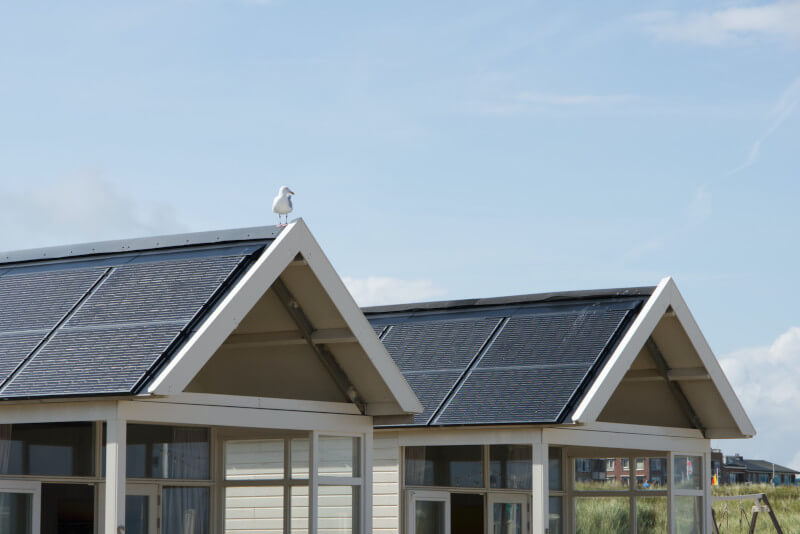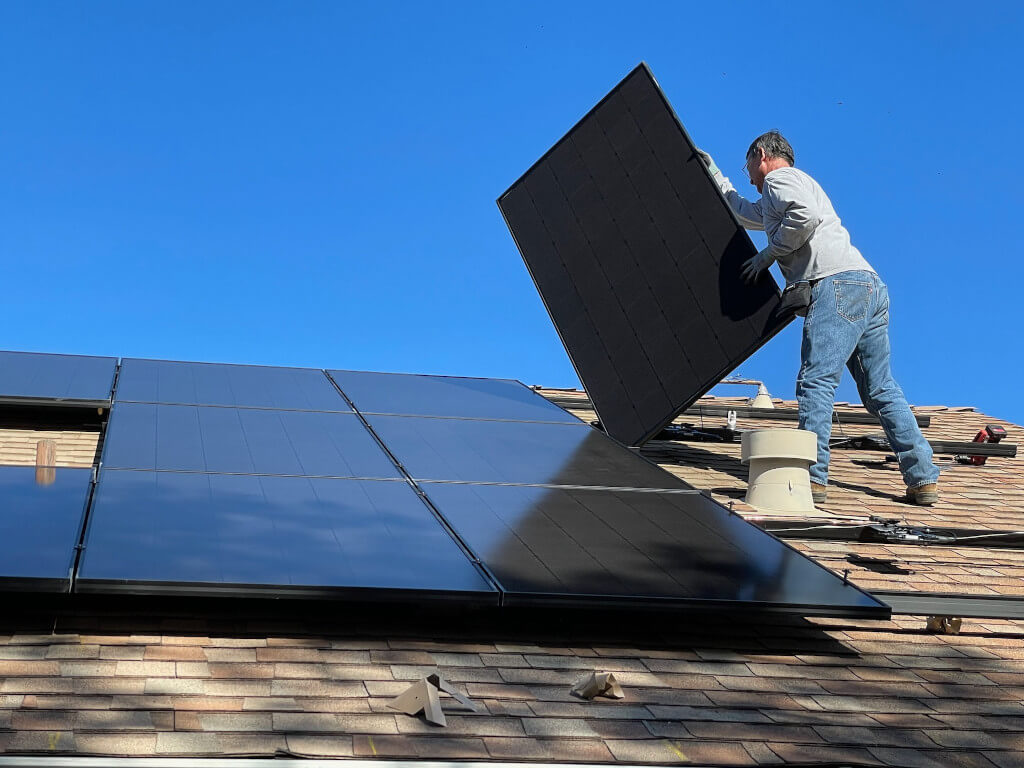How much do solar panels typically cost, and do you think it’s a good idea to invest in them for my home? Solar panels can be pricey, but the money you save on your monthly electricity bills will more than pay for the system in seven years or less. This is true even in locations where solar power is more expensive to purchase. It is not unusual for there to be a payback period of five years; however, even if it takes seven years, you will continue to accumulate savings after the conclusion of the payback period. Following this, we will talk about:
- What exactly is meant by the term “solar power,” and why should you think about using it?
- How much does it cost to run a home on solar power?
- How to Determine the Appropriate Dimensions for Your Solar System
- Why purchasing a battery for your solar power system is a smart investment
- Figuring out who will supply and install your solar panels
What Exactly is Meant by the Term “Solar Power,” and Why Should You Think About Using It?
Solar photovoltaic, or PV, systems are another name for solar power generation systems. Solar panels, which are typically fixed to the surface of a building’s roof but can be installed virtually anywhere else, are used to harvest the sun’s rays and turn them into usable energy. A device known as an inverter is used to transform the collected solar energy into an alternate current (AC). Even though solar panels can only generate power during the day, there are battery storage units that can store the energy generated by them so that they can be used at night.
The Use of Solar Power Can Be Broken Down Into Two Stages
Up until around 2011, solar panels were very expensive, and the time it took to recoup the initial investment was significantly longer than the panels’ expected lifespan. Since 2011, the price has been steadily declining, and as of today, it has reached a point where it has leveled off and is significantly more affordable than it was in the past.
The efficiency and dependability of solar panels have also increased over the years. In the past, solar panels were quite pricey, so the majority of homeowners purchased smaller systems with a maximum capacity of 2 kW. A system with a capacity of 5 kilowatts (kW) costs roughly the same today as a system with a capacity of 2 kilowatts (kW) did before 2011. This is a better system to have because it can satisfy the majority of, if not all, your energy needs.
How to Determine the Appropriate Dimensions for Your Solar System
Solar panel systems are composed of several individual panels, and the total capacity of the system is determined by the total number of panels as well as the system effectiveness of the panels. They can be placed in locations where the sun infrequently shines as well as in locations where it shines frequently, so different estimates can be given for each scenario. Solar panels can also be placed on roofs that are wholly or partially shaded during the day, but the efficiency of these installations will be lower.
The amount of energy that you need throughout the day is referred to as your “self-consumption,” and solar power is recorded in “self-consumption” units. Kilowatt-hours (KWh) are the units used to measure the amount of energy that can be saved by installing a system that ranges from 5kW to 10kW. Here are some guesstimates of how much electricity you will save for various levels of energy consumption:
- 5–10 KWh will result in a 30% reduction in cost.
- 11-15 KWh will result in a savings of 48%
- The savings will range from 66 percent to 21-25 KWh.
- There is a potential 82% reduction in cost with 31–40 KWh.
It is not an issue to purchase a solar power system that is much larger than what your household needs, but it is a problem to purchase a system that is significantly smaller than what your household needs. Retailers and installers of solar energy systems can assist you in locating the system that best meets your requirements.
How Much Does It Cost to Buy Solar Panels?
Six to fourteen solar panels with a power output of 345 watts are utilized by the typical family home, while larger homes may employ as many as twenty-three solar panels. However, this is dependent on the amount of space that is available, the amount of electricity that is consumed, and the specifications of the inverter. A solar panel with 345 watts of monocrystalline power costs approximately R2500, while one with 540 watts of monocrystalline power costs approximately R4500.
Why Purchasing a Solar Charger is a Smart Investment and How It Works

The prices listed above are only for solar panels; the cost of a battery will be significantly higher. You will likely be able to accumulate energy in the battery throughout the day so that you will have it available for use during the night. This makes purchasing a battery a wise investment. Your consumption of electricity drawn from the grid will go down as a result, as will your monthly bill for this service.
The size of the batteries you need is determined by your typical daily electricity consumption as well as the size of the solar system you have. Batteries do not simply store sufficient energy to allow you to keep the lights on in your home throughout the night. It is possible to achieve what is known as “energy autonomy” for a period of three to five days with the right size battery.
Depending on the capacity and type of battery, the cost of solar batteries can range anywhere from R20,000 to R120,000. Batteries have a payback period that ranges from three to five years, even at the higher end of the spectrum, and their warranties are considerably longer than their payback periods. Some batteries come with a 7-year warranty, while others have a warranty that is good for 10 years. Because the payback period cannot exceed five years, even if it takes you seven years, you will still end up with some savings.
Considering that lithium batteries typically come with a warranty that lasts for ten years and is known for their high level of performance, it is prudent to invest in lithium batteries.
The price of batteries that also include inverters and chargers will be higher than the price of batteries by themselves. A battery of the same size that is compatible with an 8 kW system may cost approximately R77000, while a battery of the same size that is compatible with an inverter/charger may cost approximately R110,800. These prices include the cost of the battery as well as the installation. The majority of homes do not require a system with an output of 8 kW, but this serves to illustrate the various price points.
The Cost of Installing a Complete Solar Power System
The following is an average breakdown of the costs associated with purchasing and installing a full solar power system, including all equipment required:
- The average cost of a 2 kWh system is approximately R60000.
- The average cost of a 3 kWh system is approximately R75,000.
- The average cost of a 5 kWh system is approximately R110000.
- The average cost of a 10 kWh system is approximately R175,000.
- The average cost of a 20 kWh system is approximately R340000.
Figuring Out Who Will Supply and Install Your Solar Panels
It shouldn’t be too difficult to find a certified solar power provider given that the majority of solar power providers are certified. However, each of them sells unique products and guarantees their products differently. Make sure you do a careful price comparison and pick a system that is of high quality and comes with a solid guarantee. Other things to keep an eye out for include:
- Installers of solar panels are required to obtain licenses and should abide by South African energy laws.
- They need to provide you with a comprehensive and itemized estimate.
- Are the panels that they sell resistant to hail damage?
- Do the prices given include labor, any additional fees, and a certificate for the electrical work?
- Are the guarantee periods specified, and does it cover everything or just a certain amount?
- Are the items they sell by the requirements of the South African Energy Act?
Inquire about the effectiveness of the systems they sell as well as whether or not they provide a warranty on the installation. The more reputable solar suppliers and installers will be willing to provide you with references that you can get in touch with to learn more about the quality of their work.

